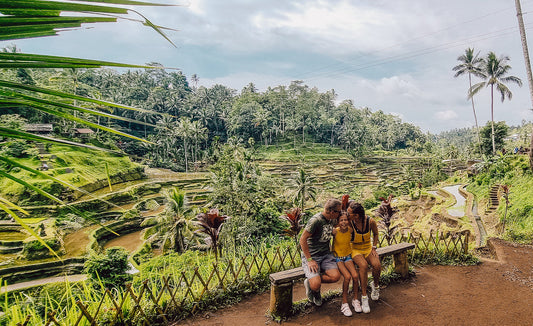Do you want to die drowning, or crushed by building’s remains? No? Me neither! Of all the danger we can encounter as world travelers, a tsunami is probably one of the biggest, but not the most probable. Here’s how to survive a tsunami.
What Is a Tsunami?
A tsunami (from the Japanese word meaning “harbor wave”) is a series of traveling waves of extremely long length due to earthquakes on the seabed, volcanic eruptions above and under water, landslides or meteorite impacts. Those gigantic waves can be formed hundreds or even thousands of miles away from the coasts. The waves have been known to range from 50 to 100ft in height. About 86% of all tsunamis result from so-called seaquakes.
Where Do Tsunamis Occur?
Tsunamis can occur in every larger sea of the world, but most frequently in the Pacific, particularly along the “Pacific Ring of Fire”. Several times a year, strong earthquakes of at least 7 on the Richter scale result in tsunamis. Japan, for example, is hit by a tsunami at least once a year.
Do Tsunamis Occur Often?
Yes, tsunamis happen quite often, but most of the tsunamis are small waves that cause only minimal damage. Over the last 25 years, 12 huge tsunamis occurred, with a total of 287,922 casualties (injuries or deaths), according to the Tsunami Alarm System.

Are Tsunamis The Deadliest Natural Disasters?
No. Over the history of humankind, floods, earthquakes and cyclones have made millions more casualties than tsunamis.
But tsunamis do occur in countries where there’s a lot of tourism.
How To Survive a Tsunami?
-
Look for the signs – If you are near the sea, be aware of the warning signs of an approaching tsunami:
- Rise or fall in sea level
- An earthquake or shaking ground
- Loud, sustained roar
-
If you are on a boat in a small harbor, and you have sufficient warning of an approaching tsunami, move it quickly.
- Your first option would be to dock and reach high ground.
- Your second option is to take your boat far into open water, away from shore, where it might be thrown into the dock or the land. Tsunamis cause damage when they move from deeper to more shallow waters, the waves back up against one another at the shallow shelf. Tsunamis can sometimes not even be felt in deep water.
-
If you are on land, seek higher ground immediately. A tsunami moves faster than a person can run. Get away from the coastline as quickly as possible.
-
If you are in a high-rise hotel or building, on the coastline, and you don’t have enough time to get to higher ground, away from the shore, move to a higher floor of the building. The upper floors of a high-rise building can provide safe refuge.
- Play it safe, even if warnings seem ambiguous or you think the danger has passed.
-
Leave as soon as you hear the warnings. Save your life, not your possessions.
- As a last resort, climb up a strong tree if trapped on low ground.
-
Climb onto something that floats. If swept up by a tsunami, look for something to use as a raft.
-
Help each other. You might be ok, but your neighbors may not. Shelter your neighbors.
How to Survive a Tsunami – Important to Know
- The first tsunami wave may not be the largest in the series of waves.
- Expect many waves. The next wave may be bigger, and the tsunami may last for hours.
- Tsunamis can travel up rivers and streams that lead to the ocean.
- Flooding from a tsunami can extend inland 1,000ft or more, covering large pieces of land with water and debris.
- In coastal areas, the largest earthquake zone may kill fewer people than the tsunami that follows.
- Don’t rely on the roads. When fleeing a tsunami caused by a nearby earthquake, you may find roads broken or blocked.
- Expect the waves to leave bebris: sand, the remains of houses, and bodies.
Have you ever been hit by a tsunami?

| 





